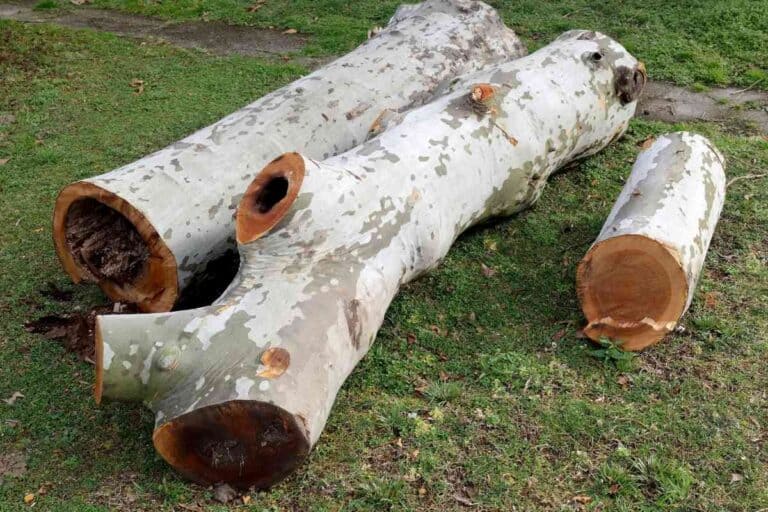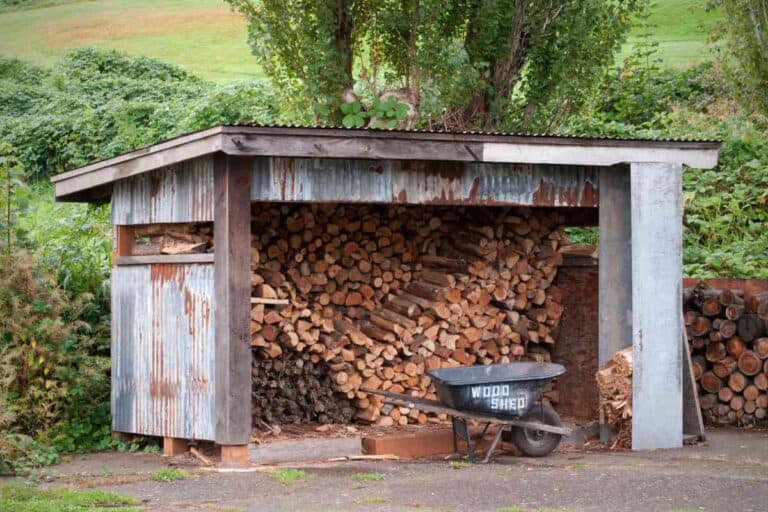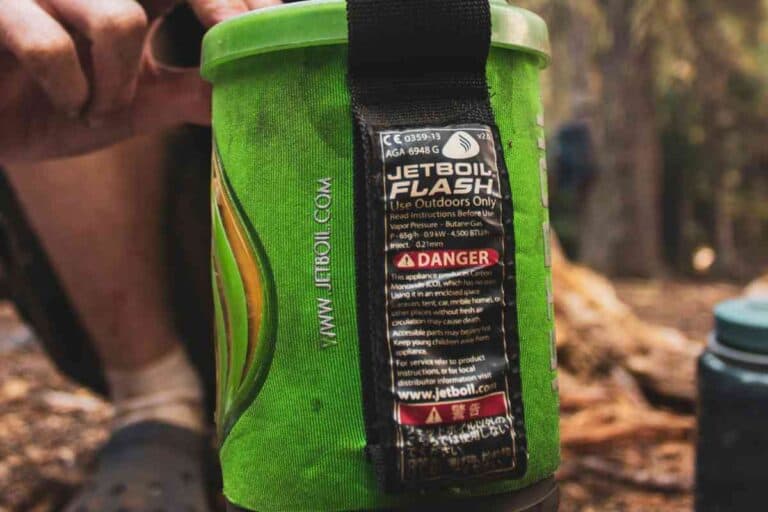RV Smells Like Propane? Do This First!
A propane leak is a serious problem in any enclosed space, and in an RV, it can be a very serious problem. A propane gas leak can be potentially deadly to anyone inside the RV and within a good range outside as well. Responsible RV owners will educate themselves on how their propane system works, how to maintain it so that it works properly, and how to troubleshoot should there be a leak.
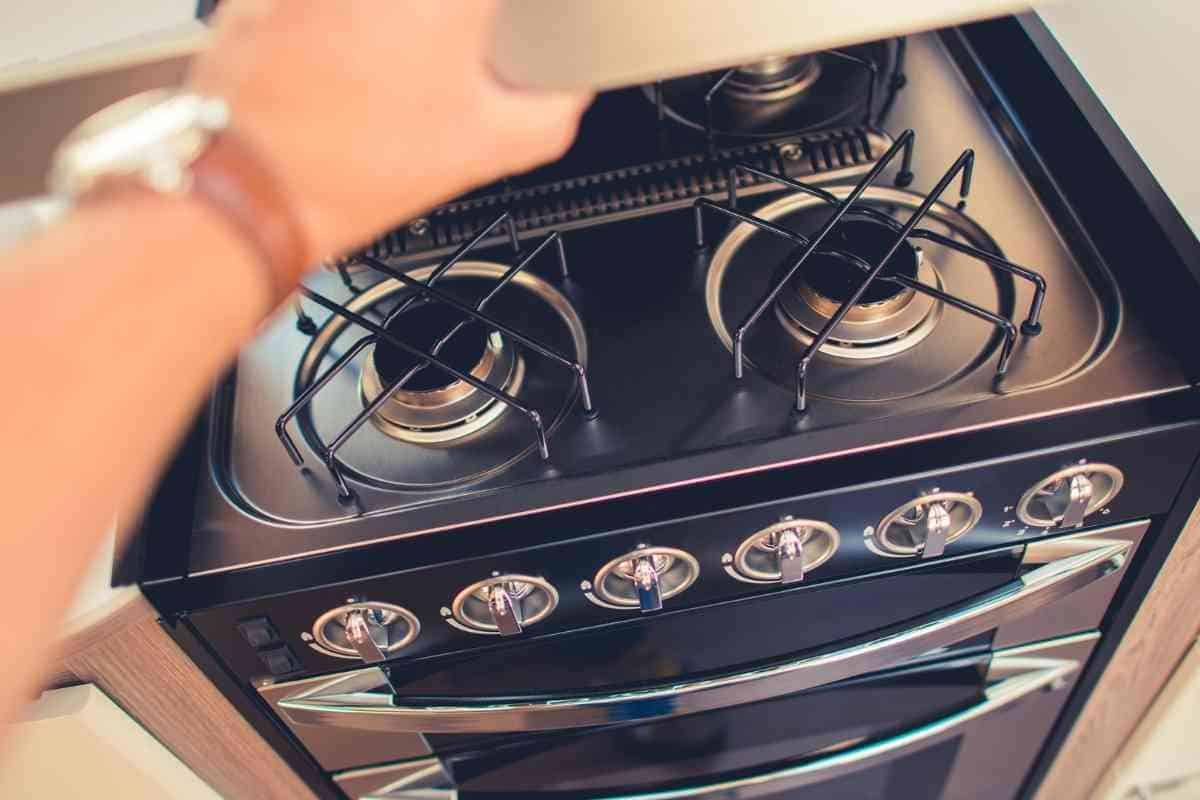
Why does my RV smell like propane?
If your RV smells like propane, you could have a leak. These are the steps you should take to check for a potential gas leak:
- Turn off the propane system and evacuate RV
- Check the propane gauge.
- Check propane lines and fittings.
- Use propane detectors.
- Call a professional to test your system.
In this guide, we’ll go through checklists for when you think you have a leak as well as when you do a regular safety check. We’ll also give guidance on what kinds of propane detection devices work best and what to do to fix a leak.
The process of checking your RV propane system should be one of the most important safety checks you do on your RV before leaving on a trip. We checked in with propane specialists to bring you guidance on what to do if you detect a propane smell in your RV.
What Should I Do If My RV Smells Like Propane
A propane leak is a serious problem in any enclosed space, and in an RV it can become a deadly situation. Propane gas is highly combustible, can act as an asphyxiant, and a small spark can create a big fire hazard.
You can usually smell a leak by its distinct “rotten egg” aroma. This stinky alarm is a safety measure put in place by manufacturers, while usually, propane is an odorless gas.
The hidden chemical, mercaptan, should rouse you even if sleeping or if your detector fails to alarm you.
Is It Normal To Smell Some Propane At The Tank
The propane system is an essential part of your RV. This is the fuel source for your heater, stove, oven, BBQ grills, and some appliances. Propane is an essential part of keeping the hot showers flowing, your fridge cold, and your outdoor kitchen functioning.
Propane is favored by RVers because it is cheaper than gas and a more eco-friendly alternative. In addition, it’s also widely available while on the road.
It is not normal to smell propane in your RV or around the tank. If you are getting a whiff of the signature rotten egg smell, you should take safety precautions immediately.
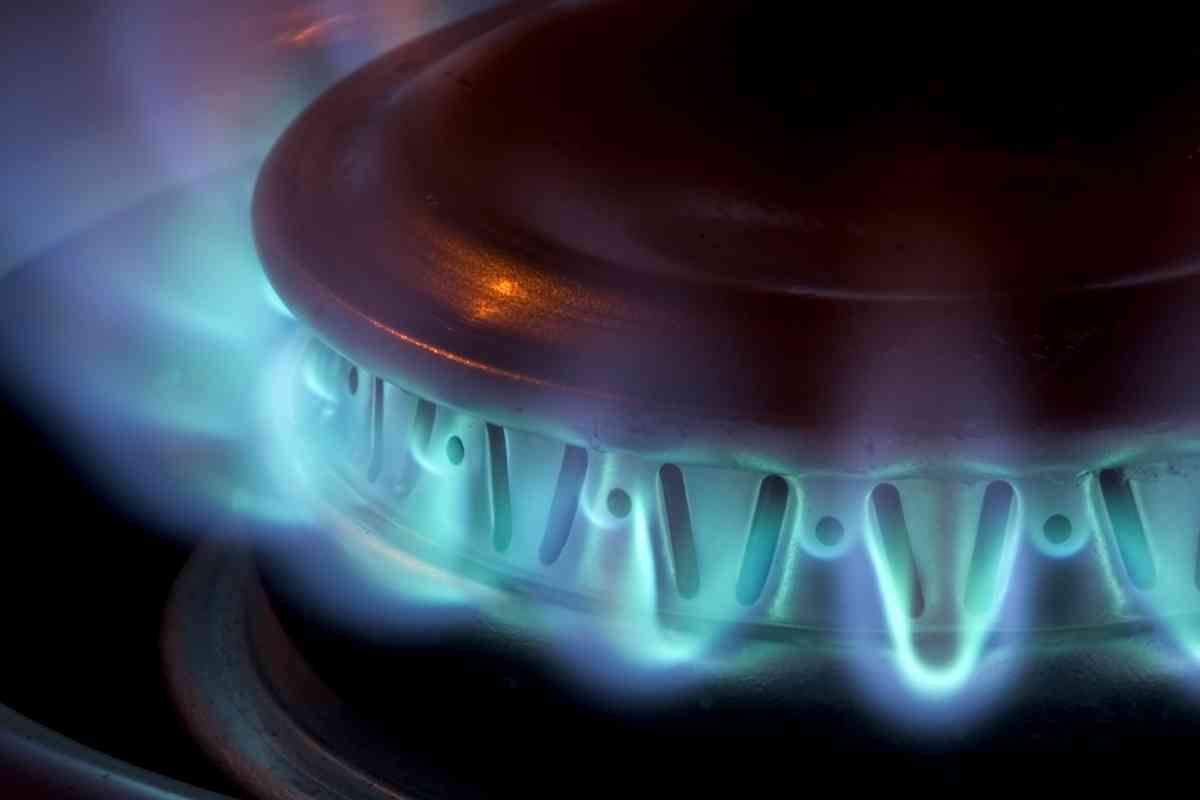
How Does An RV Propane System Work
Understanding your RV system is imperative for knowing what to check when you smell a leak. High-pressure propane gas flows out of the tank and into a central regulator. The regulator’s function is to convert high-pressure gas to a low-pressure form that is distributed into propane-fueled appliances.
Optionally you can hook up a t-fitting to be used for multiple tanks. These t-fittings are often installed between the tank and regulator and can be a potential leak site. A supply hose then connects the gas flow to the RV’s propane piping system.
The key signs that you have a potential leak are:
- A rotten egg smell.
- A propane detector going off (don’t ignore it, even if you can’t smell the leak).
- An unusual drop in propane.
- DSI or error codes from your water tank or RV refrigerator.
What Should You Do If you Suspect A Leak?
Due to the highly flammable nature of propane gas, the first thing should do if you detect a propane smell in your RV is don’t hesitate to:
- Open all doors and windows.
- Evacuate all people out of the RV.
- Turn off the LP Valves immediately.
You can then go about assessing the situation. Here are the checks that can be made to assess for a leak.
Follow Your Nose
Follow your nose to a potential leak (after turning off the gas valve). Where there is a rotten egg aroma, there is likely a leak.
Use a propane detection meter.
There are several types of propane detection meters. One should always be installed in your RV, ceiling mounted, or a mobile unit. These should be tested regularly to ensure they are working. If you suspect you have a leak, there are handheld units as well such as the handheld Gassaf propane detector.
Using a meter can be especially helpful for checking for leaks outside where you may not be able to smell them.
Check the levels of your propane tank(s).
Do a visual check of your gauges to assess if there has been an unusual drop in pressure. Alternatively, you can use a propane dial manometer that can give you measured data about a potential drop in pressure.
You might notice a dip in propane when your propane fueled appliances cease to work. It’s always a good idea to keep a regular check of the gauge and to know how fast you usually go through a tank.
Check for leaks in lines and fittings.
Use a spray bottle with soapy water and spray along all lines, fittings, the regulator and gauges to look for signs of bubbling gas.
How To Fix a Propane Leak In Your RV
This is one fix where a DIY approach is not recommended. You don’t want to risk a potentially fatal result due to the explosive nature of propane gas.
If you have determined you have a leak, call a professional technician immediately. A leak is not only an immediate risk to your vehicle and family, but also to any vehicles, houses, or people around your RV. Have the technician check all lines, fittings, and your propane gas tank itself.
What Causes Propane Leaks
Propane leaks are usually caused by worn valves or cracked lines. The tank itself can also be fairly and should be checked regularly by a technician.
In addition, overfilling a tank can cause a slow leak and a dangerously combustible tank. Over time the metal on the tanks and the open air nature of their mounting can cause corrosion making the metal vulnerable to the elements.
How To Maintain Your RV Propane System
Maintaining your propane system is key to avoiding a leaky and dangerous situation.
- Make sure all people traveling in your group know where the shut off valve is in case of emergency.
- Never store tanks inside the RV itself, these should be mounted tightly to the appropriate area outside of your RV.
- Use RV specified propane tank system appliances. A home propane system and an RV propane system should not be interchangeable.
- Keep a fire extinguisher in good working order and in an easily accessible place should a spark ignite a fire with the leak.
- Remove appliance covers regularly to clean and check for any issues in the gas supply connections.
- Have backup handheld propane meters on hand. Make sure your installed propane detector is tested regularly and has fresh batteries if it is run by batteries.
- Use a propane gauge regularly to check your levels to detect unusual drops.
- Have your system inspected regularly by a service technician who will evaluate the entirety of your propane system for any problems or improvements that need to be made.
As a last precaution, most insurance companies and RV manufacturers recommend that you turn off your propane system while driving. This can be difficult if your propane is appliances like your refrigerator, but it is ultimately the best safety precaution.


![Can Microinverters Be Used Off Grid? [Answered!]](https://freedomresidence.com/wp-content/uploads/2022/05/Can-Microinverters-Be-Used-Off-Grid-768x512.jpg)
